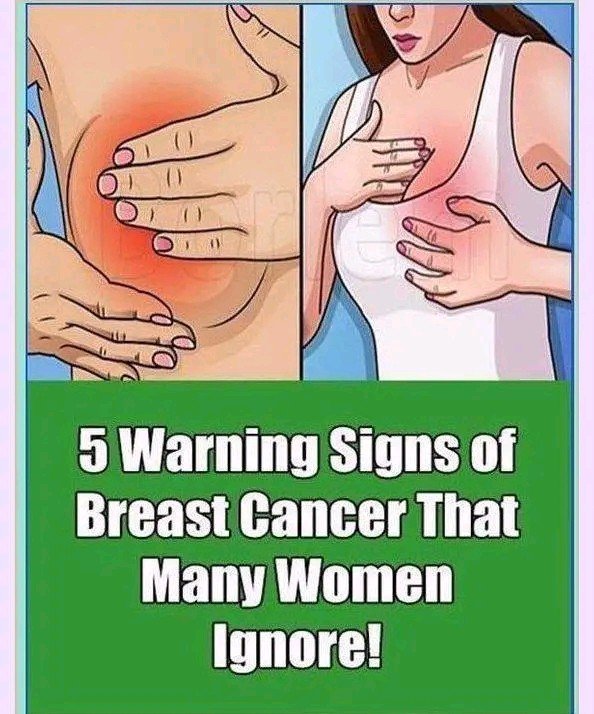5 Warning Signs of Breast Cancer That Many Women Ignore 🎗️

Breast cancer is one of the most common cancers among women, but when detected early, the chances of successful treatment are much higher. The problem is that many early signs are often ignored or mistaken for harmless changes in the body. Knowing what to look for can help you act quickly and protect your health.
1. Unusual Lumps or Thickening
The most common warning sign is a new lump in the breast or underarm. Not all lumps are cancer, but any new, hard, or painless lump that feels different from the rest of your breast tissue should be checked by a doctor.
2. Changes in Breast Shape or Size
If one breast suddenly looks different—larger, swollen, or oddly shaped—it could be a red flag. Even subtle changes in symmetry should not be ignored.
3. Skin Changes on the Breast
Redness, dimpling (skin looking like an orange peel), or unusual rashes on the breast are signs many women dismiss as irritation. These skin changes may actually be linked to underlying breast cancer.
4. Nipple Changes or Discharge
If your nipple becomes inverted (pulled inward), develops sores, or starts discharging fluid (especially blood-stained), it needs immediate medical attention.
5. Persistent Pain or Discomfort
Breast pain is often linked to hormones, but if pain or tenderness persists in one area of the breast, it’s important not to overlook it.
Final Thoughts
Breast cancer doesn’t always show dramatic signs in the beginning—that’s why regular self-exams and screenings are crucial. If you notice any of these warning signs, don’t wait. Early detection could save your life.
FAQs
1. Does every breast lump mean cancer?
No, many lumps are harmless cysts or benign growths, but it’s always safest to get them checked.
2. At what age should I start regular breast checks?
Doctors recommend monthly self-exams from your 20s and mammograms after 40 (or earlier if you have family history).
3. Can men get breast cancer too?
Yes, although rare, men can also develop breast cancer.
4. How often should I see a doctor if I notice changes?
Immediately—don’t wait for symptoms to go away on their own.






